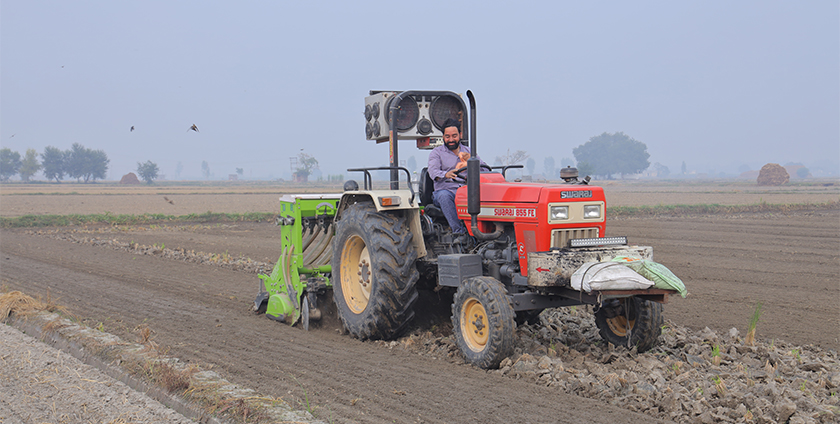
Jind district in Haryana ranked third highest in fire incidents, accounting for 505 Active Fire Locations (AFLs), nearly 14% of the total AFLs in Haryana. These 505 AFLs in Jind caused an estimated 0.12 million tonnes of stubble burnt, emitted 0.17 million tonnes of CO2 and other greenhouse gases, and resulted in a substantial ~2.18 million USD loss of revenue from burning.
The initiative “Harit Dhara, Saaf Vayu” focuses on Crop Residue Management and Direct Seeding of Rice in Jind District, Haryana, with a strategic objective to combat the enduring challenge of stubble burning in North India, particularly within Haryana’s Jind district. The project is designed to address the complex issue of stubble burning through a multi-pronged approach, promoting sustainable agricultural practices and contributing to environmental conservation and community well-being in 96 villages of 7 blocks in Jind, 18,708 acres of farmland, and will benefit 5,492 farmers.
Foundation for Development Initiative (FDI) has partnered with NatWest India Group, the Department of Agriculture, Haryana, District Administration, Jind, Haryana State CSR Trust, Custom Hiring Centres (CHCs), and Farmers.
The project’s primary objectives include reducing Active Fire Locations (AFLs) in the Jind district, raising awareness about the harmful effects of stubble burning, promoting alternative methods like Crop Residue Management (CRM), and sensitizing farmers to Direct Seeding of Rice (DSR), a climate-smart agriculture practice. Various activities such as stakeholder engagement, focus group discussions, one-to-one interactions, awareness programs, and the use of the Krishi Yantra Saathi mobile application for CRM services will be pillars of the project.